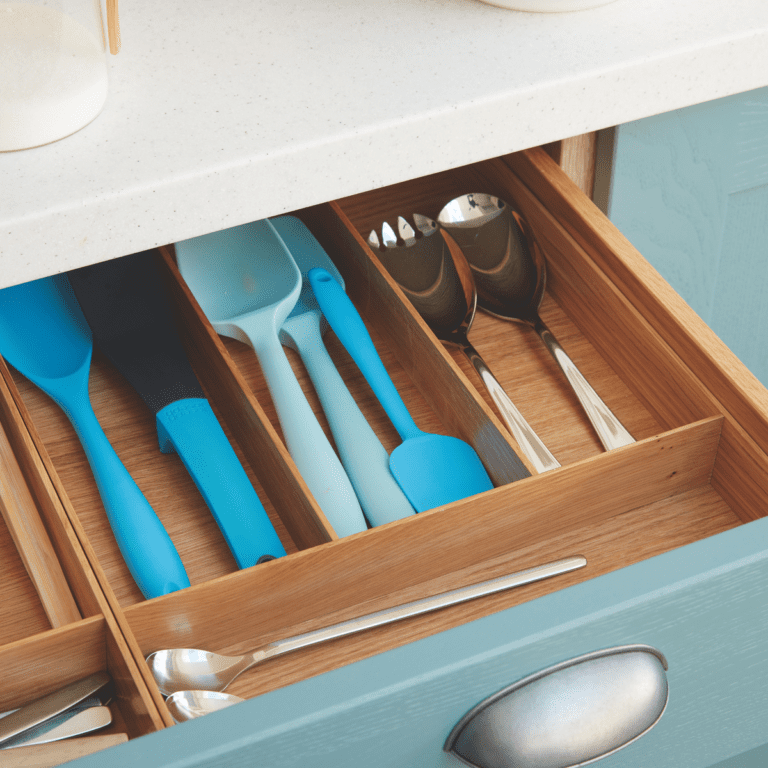Black plastic kitchen utensils, such as spoons and spatulas, may contain toxic flame retardants from recycled electrical products, a new study shows.
The same chemicals have also been found in children’s toys, ready-meal containers and meat packaging. The study, published in the US, examined 203 black plastic products and found that black plastic contained toxic brominated flame retardants (BFRs) in 85% of them.
You may have your favorite kitchen tools that fit perfectly into your best pots, but it’s worth considering whether or not they could be causing harm.
Although restricted in the EU since 2006, levels of inhibitors in the UK and USA are particularly high according to a 2017 study by Breast Cancer Now UK. Furthermore, research has shown that BFRs can cause premature mammary gland development which is associated with an increased risk of breast cancer, according to a 2021 study in Science Daily.
The latest study, published October 1 in the US scientific journal Chemosphere, focused on the prominence of BFRs in the United States, finding that black plastic in the United States contains levels of decaBDE of BFRs five to 1,200 times higher. times the permissible limit in the European Union.
However, experts have warned that here in the UK, toxic levels of brominated flame retardants are still found in black plastic kitchen utensils.
(Image source: Future PLC/Simon Bevan)
What is the risk?
A 2018 study by the University of Plymouth found that hazardous chemicals such as bromine and antimony appear in household products as a result of the recycling process. It stated that manufacturers were using recycled electrical equipment as a source of black plastic during the process.
“These chemicals typically end up in kitchen utensils from e-waste recycling, which is treated with flame retardants to prevent overheating and fires,” says Mike Schmidt, an attorney with Schmidt & Clark LLP, who specializes in product liability.
“When these plastics are recycled into kitchen utensils, harmful chemicals remain in the materials. This means that every time you use these utensils, especially with hot food, there is a risk of these chemicals leaching into your meals.
It is difficult to trace these chemicals during the recycling process.
“These plastic chemicals don’t disappear through recycling, they accumulate and lose traceability,” says Sian Sutherland, co-founder of A Plastic Planet and the Plastics Health Council.
This means that chemicals can transfer into recycled plastics as they are processed. According to Greenpeace, the recycling process can produce new toxic compounds when different chemicals come into contact with each other.
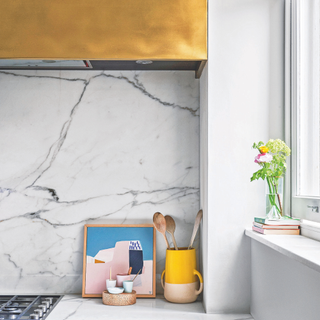

(Image source: Future PLC/David Lovati)
Will my health be affected?
“One piece of plastic may expose us to a small amount of chemicals, but if you multiply that by millions when you drink from a plastic bottle or stir your food with a plastic utensil each year, the buildup of chemicals is what takes its toll,” says Sian.
“PFAs and phthalates found in plastic may cause cancer, infertility, heart disease and more.
“Recent research by Plastics Health Board member, Professor Lukas Keener, has revealed that cancer cells spread at an accelerated rate after coming into contact with microplastics, suggesting that plastics could play a key role in the initial genesis of cancer.”
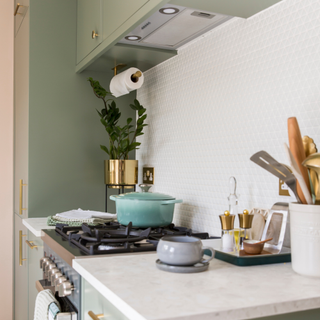

(Image source: Future PLC/ Lizzie Orme)
What can I use instead of plastic?
Sian works with Alder Hey Children’s Hospital and the NHS to campaign for more regulation around plastic, and both Sian and Mike recommend ditching plastic when it comes to cooking.
“For those looking for safer alternatives, stainless steel and silicone utensils are excellent options,” says Mike.
‘Stainless steel is durable, easy to clean and contains no harmful chemicals. It has been a reliable material in kitchens for decades.
Silicone utensils are also a good choice because they are heat resistant and free of toxic additives. They’re flexible, making them great for nonstick cookware, and come in a variety of colors and patterns to suit any kitchen.
“Both materials provide a safer alternative to black plastic and can help reduce exposure to harmful chemicals.”
Sian comments: “There are alternatives to plastic products or packaging, whether they are made from metal, sustainably sourced paper, or natural materials that work with the earth rather than against it.”
Although it is not always possible to ensure that the plastic products we buy are free of toxins, there are some things you can check.
First, check the labels to see if the product is BPA-free — meaning it doesn’t contain the toxic chemical Bisphenol A, which has also been linked to cancer.
Second, check the resin identification code. This symbol is usually stamped on the bottom of the product and is an arrow-shaped triangle with a number inside. Numbers two, four and five are generally considered food safe.
Our non-plastic picks
Below is a selection of non-plastic kitchen utensils.
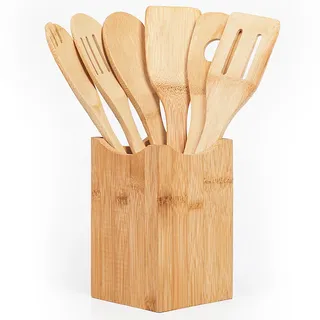

Woodluv Kitchen Cookware Set 6 x Spatula Spatula with Utensil Holder
Bamboo is durable enough to move and stir as well as being waterproof. It also has antibacterial properties which makes it ideal for food preparation.
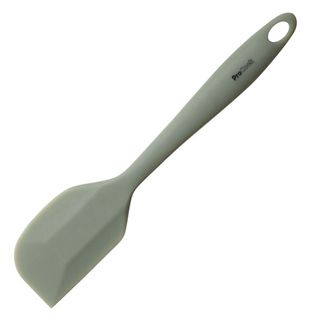

Small silicone sage spoon
This spoon can withstand temperatures up to 260°C. It’s ideal for non-stick pans, with a spatula-shaped head for scooping food.
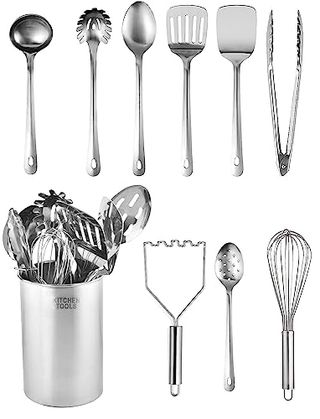

10pcs stainless steel kitchen utensils
Stainless steel is durable and easy to clean. It is non-toxic and resistant to stains and abrasion.

